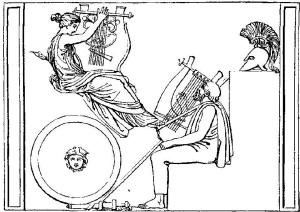Kasidah of Haji Abdu El-Yezdi
Fiction & Literature, Poetry, Inspirational & Religious, Nonfiction, Religion & Spirituality, Philosophy, Religious, Classics| Author: | Sir Richard Francis Burton | ISBN: | 1230000325233 |
| Publisher: | Consumer Oriented Ebooks Publisher | Publication: | March 28, 2015 |
| Imprint: | Language: | English |
| Author: | Sir Richard Francis Burton |
| ISBN: | 1230000325233 |
| Publisher: | Consumer Oriented Ebooks Publisher |
| Publication: | March 28, 2015 |
| Imprint: | |
| Language: | English |
The Translator has ventured to entitle a Lay of the Higher Law
the following composition, which aims at being in advance of its
time; and he has not feared the danger of collision with such
unpleasant forms as the Higher Culture. The principles which
justify the name are as follows:
The Author asserts that Happiness and Misery are equally divided
and distributed in the world.
He makes Self-cultivation, with due regard to others, the sole
and sufficient object of human life.
He suggests that the affections, the sympathies, and the divine
gift of Pity are mans highest enjoyments.
He advocates suspension of judgment, with a proper suspicion of
Facts, the idlest of superstitions.
Finally, although destructive to appearance, he is essentially
reconstructive.
For other details concerning the Poem and the Poet, the curious
reader is referred to the end of the volume.
F. B.
Vienna, Nov., 1880.
The Translator has ventured to entitle a Lay of the Higher Law
the following composition, which aims at being in advance of its
time; and he has not feared the danger of collision with such
unpleasant forms as the Higher Culture. The principles which
justify the name are as follows:
The Author asserts that Happiness and Misery are equally divided
and distributed in the world.
He makes Self-cultivation, with due regard to others, the sole
and sufficient object of human life.
He suggests that the affections, the sympathies, and the divine
gift of Pity are mans highest enjoyments.
He advocates suspension of judgment, with a proper suspicion of
Facts, the idlest of superstitions.
Finally, although destructive to appearance, he is essentially
reconstructive.
For other details concerning the Poem and the Poet, the curious
reader is referred to the end of the volume.
F. B.
Vienna, Nov., 1880.















